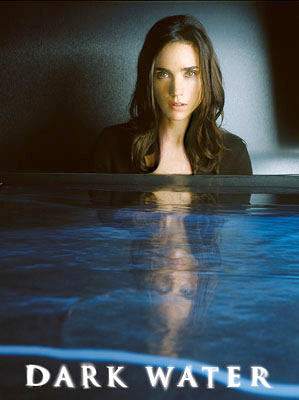 Saying that the storyline of "Dark Water" doesn't hold water is probably a compliment to director Walter Salles, who succeeds in creating a gloomy, soggy, ghost story dampened with subtle modern day social commentary about divorce, child abandonment and our Prozac Nation.
Saying that the storyline of "Dark Water" doesn't hold water is probably a compliment to director Walter Salles, who succeeds in creating a gloomy, soggy, ghost story dampened with subtle modern day social commentary about divorce, child abandonment and our Prozac Nation.
As a devoted horror movie fan who is usually disappointed with most new releases, I decided I'd give this one a shot, putting my trust in Oscar-winner Jennifer Connelly.
Her presence definitely made a difference in this film, which required a skilled lead actress.
Connelly is believable as Dahlia, a 30-something mother in the midst of a divorce whose financial situation leads her and her young daughter to an affordable, yet run down apartment just outside of New York City.
From the beginning of the film, the director symbolically comments on the failure, disconnectedness and mechanicalism of modern day society, using social issues like divorce, mass transit and communal architectural styles to make viewers emphathize with Connelly's character.
Dahlia is alone, unnattached, common and lost in a gloomy city where everyone is tragically independent.
The industrialization theme is powerful. Used in many science fiction novels to heed warning about the aforementioned results of a modernized world, Salles vision of failed modernism is aptly represented by the deteriorated apartment complex in which Dahlia and her daughter move.
If you are like me and Billy Bob Thornton, the only other person I've ever heard of who shares my phobia of furniture and decor from years past, you will be creeped out merely by the interior of the complex and apartment.
The mustard yellow walls, unreliable elevator and leaky ceiling echo the central theme of the film - abandonment and neglect.
Dahlia, who was abandoned as a child by both parents, has not dealt with her past. While anti-depressants help her do so, they also seem to hinder her ability to distinguish between fantasy and reality, a characteristic her young daughter, Ceci, also begins to exhibit when she brings an abnormal imaginary friend to her new school.
You should probably stop reading now if you intend to see the film because we later realize that Ceci's imaginary friend is not imaginary at all and is instead the ghost of an abandoned child who desires to be reclaimed.
As the movie suggests, water is the substance that hauntingly mixes the plot. It begins as a small leak, then becomes an uncontrollable problem like the ghost of the film.
Koji Suzuki, who also penned "The Ring," uses water and confinement once again like he did with the child in the well in his first American success.
And like "The Ring," once the mystery is solved and the lost soul is released, it does not find peace like the ghosts of many Hollywood horror films.
Suzuki's ghosts continue to terrorize until they get their way.
Saying that the storyline of "Dark Water" doesn't hold water is probably a compliment to director Walter Salles, who succeeds in creating a gloomy, soggy, ghost story dampened with subtle modern day social commentary about divorce, child abandonment and our Prozac Nation.